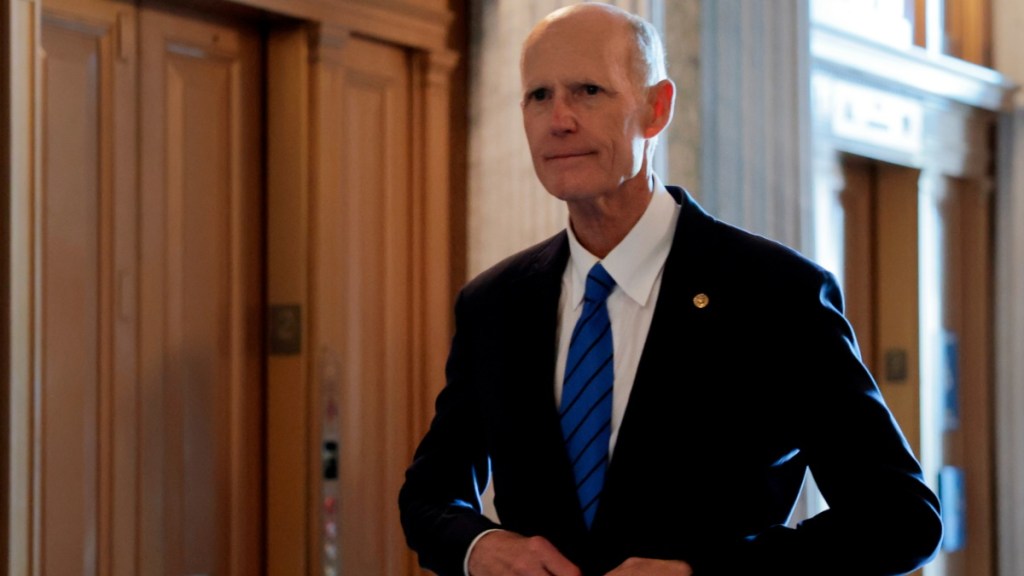Rick Scott’s net worth in 2025 reflects his dual legacy as a healthcare mogul and a prominent Republican politician. Best known for his tenure as Governor of Florida and his current role as U.S. Senator, Scott built his vast fortune in the private sector before transitioning into public service.
Here’s a look at Rick Scott’s net worth and how he continues to earn money through business, legislation, and investments.
What is Rick Scott’s net worth in 2025?
Rick Scott has an estimated net worth of $320 million in 2025.
His wealth includes decades of earnings from the healthcare industry, real estate investments, and business holdings through Richard L. Scott Investments. He is consistently ranked among the wealthiest members of the U.S. Senate.
Rick Scott is most famous for serving as the CEO of Columbia/HCA and later as Florida’s governor from 2011 to 2019. He has served as a U.S. Senator from Florida since 2019.
What does Rick Scott do for a living?
Rick Scott is a U.S. Senator and former businessman.
Most recently, Scott introduced bipartisan legislation to standardize food expiration labels under the Food Date Labeling Act. He also spoke at the AUVSI Symposium, advocating for stronger U.S. drone manufacturing and domestic security. Additionally, Scott has introduced proposals to reform Federal Reserve practices and reignited tensions with Governor Ron DeSantis over Florida’s insurance crisis.
Rick Scott’s earnings explained — how does he make money?
Rick Scott earns money from multiple business ventures and his role in public office. His income sources include:
- Former CEO’s compensation from Columbia/HCA
- Stock holdings and severance package valued at over $300 million
- Real estate and investment firms such as Richard L. Scott Investments
- Ownership in healthcare services, including Solantic and Alijor.com
Although his Senate salary is modest by comparison, Scott’s financial disclosures reveal extensive assets across various sectors. He remains politically active, pushing legislation related to food waste, drone policy, Federal Reserve oversight, and foreign relations. As of 2025, he continues to be one of the most financially powerful figures in Congress.








